Last week, more than 400 objects from the Walker Collection of American signs were auctioned in the small town of Proctor, Arkansas. The signs had been collected over a period of fifty years by one man who became obsessed with saving the signs from eventual destruction, either by neglect or by other collectors who would cut the double-sided signs in half to sell both sides.
In preserving and restoring the signs, Vernon Walker knew he was saving a key part of American advertising history, hoping to one day open a museum. But like many collectors, time caught up with him, and the museum never happened. At seventy-four, he decided not to leave the dispersal of the signs to his family—and contacted an auction broker, who readied the signs for auction right on the premises of Walker’s warehouse.
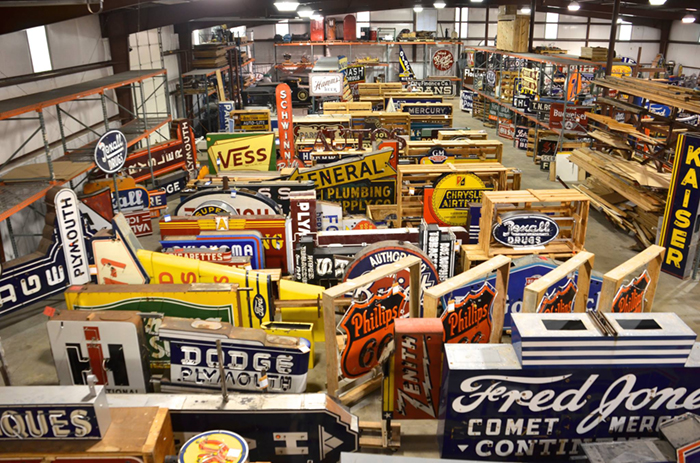
The Walker Collection warehouse
The auction was highlighted by the sale of several extremely rare signs, including one for Weakley Lawn Equipment, which sold for $125,000. Bill Piper with Neogram Sign Company designed this unique sign in 1948, when the cost to produce it was an astonishing $8,000. According to the auction catalogue, this sign is one of the most unique and intricate in the collection.
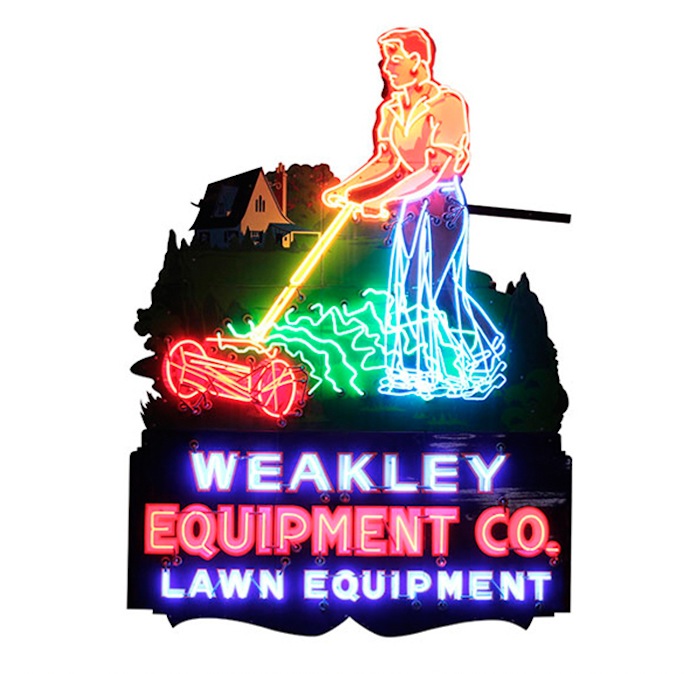
This unique Weakley Equipment sign is "animated," double-sided, and is still in working condition | 96 x 138 x 36 inches
Fewer and fewer people have seen the great signs of the past except in photographs or at auctions like this one. Historic signs like these, most of which exhibit great technical and artistic skill, are important artifacts of our cultural, advertising, and socio-economic history. Most have deeper stories than the neon, enamel, or porcelain can tell—stories that were on the front lines of the American free enterprise system.

I am sure Walker bought many of the signs for the mere cost to remove them. Great signs still exist here and there across the country, but they are being lost to decay and neglect. Mr. Walker should be commended for his perseverance and dedication. Though no longer together as a group, the signs will be preserved by individual buyers for the future.


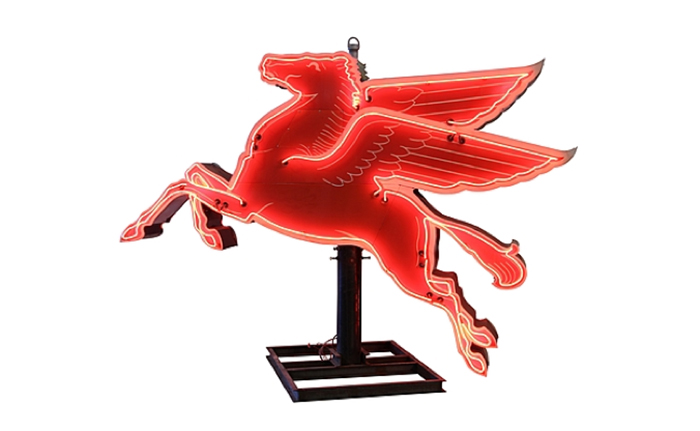
Pegasus, from a Mobil Oil sign, brought $72,500 at auction | 120 x 80 x 17 inches
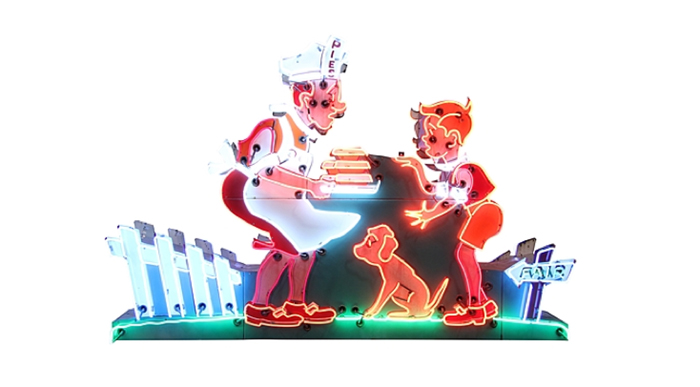

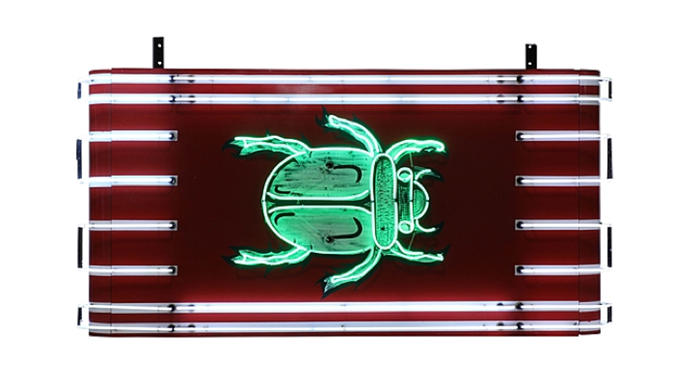

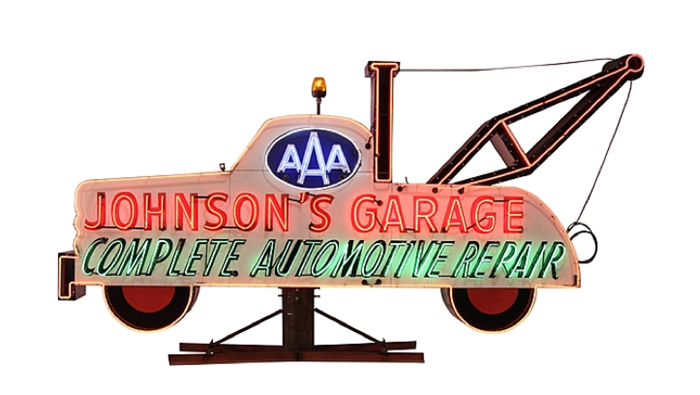
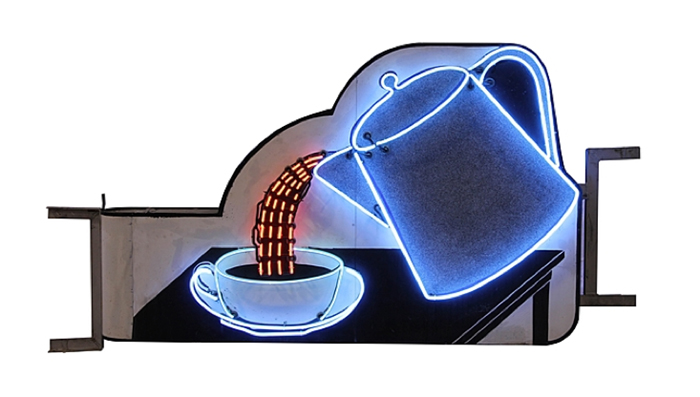

Southern Beer | 60 x 60 x 21 inches


Point Special Beer | 40 x 33 x 18 inches
I am sure Walker bought many of the signs for the mere cost to remove them. Great signs still exist here and there across the country, but they are being lost to decay and neglect. Mr. Walker should be commended for his perseverance and dedication. Though no longer together as a group, the signs will be preserved by individual buyers for the future.

Hudson | 90 x 46 x 16 inches

Steam Heat | 60 x 12 x 13 inches

Pegasus, from a Mobil Oil sign, brought $72,500 at auction | 120 x 80 x 17 inches

A double-sided neon from the restaurant and motel chain Howard Johnson's | 113 x 78 x 23 inches

Siesta Motel | 104 x 71 x 15 inches

Flashing beetle neon sign | 108 x 55 x 16 inches

D-X | 66 x 37 x 5 inches

Johnson's Garage | 192 x 96 x 19 inches

Animated neon coffee pot sign | 76 x 48 x 15 inches

Southern Beer | 60 x 60 x 21 inches

Leader Newspapers sign sold for $52,500 at auction | 72 x 98 x 20 inches
All signs created c. 1920–1965; photos courtesy Mecum Auctions
All signs created c. 1920–1965; photos courtesy Mecum Auctions
